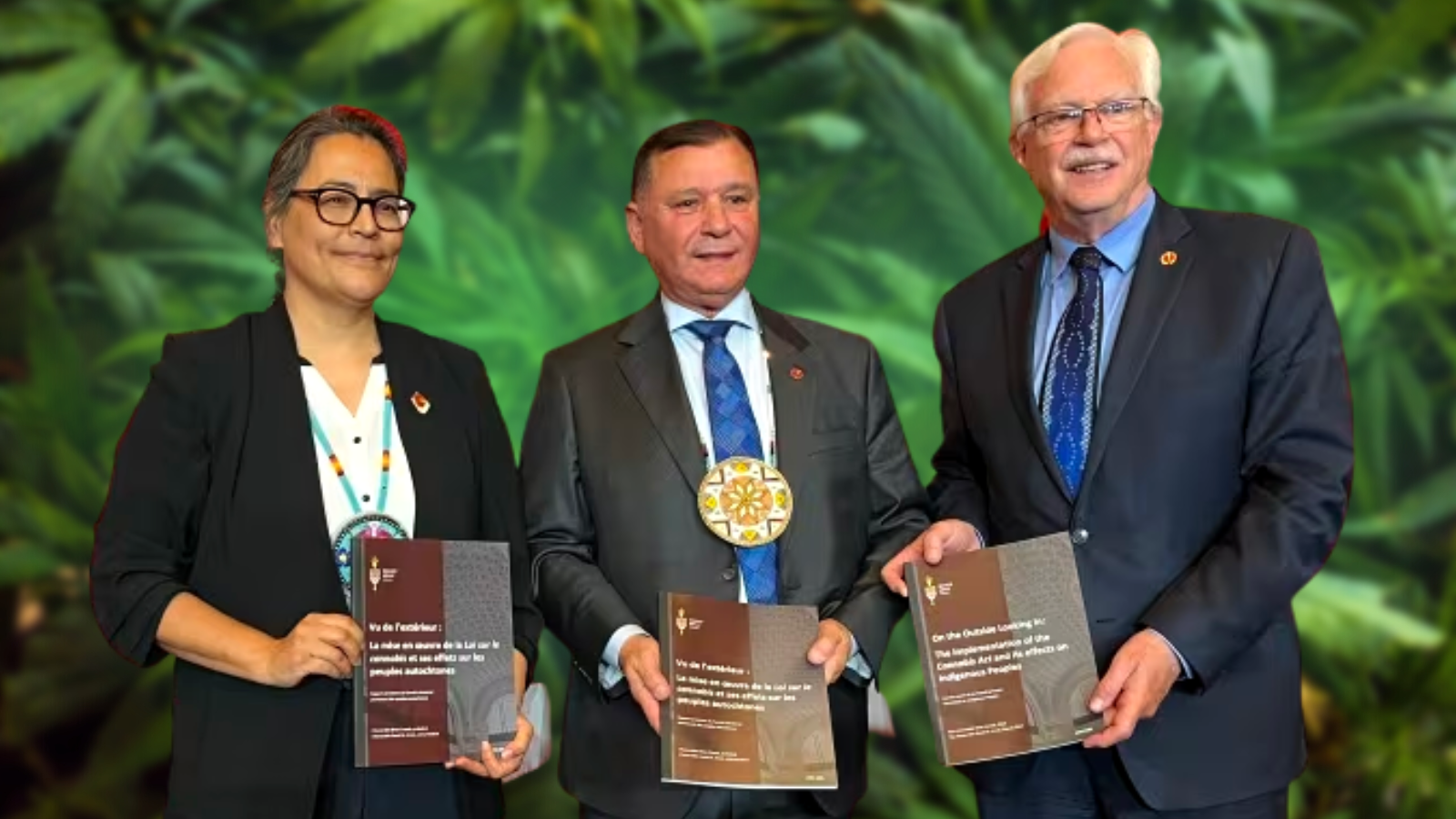The Senate committee on Indigenous Peoples has called for an overhaul of the 2018 Cannabis Act to address the exclusion of First Nations from the cannabis industry. Despite the legalization of cannabis, many problems identified prior to legalization still persist, preventing some First Nations from participating in this lucrative market. The legislative gaps have given rise to a “red market,” operating under First Nations sovereignty but conflicting with federal-provincial regulations. This situation highlights the ongoing challenges faced by Indigenous Peoples in Canada and their continued exclusion from economic opportunities.
Top Reads: Spinello’s Hash: A Proudly Indigenous Product With A Unique Flair
Historical Exclusion of First Nations from Economic Opportunities
For the past 150 years, First Nations have faced exclusion from economic opportunities on their lands. This exclusion extends beyond the cannabis market to sectors such as fisheries and forestry. Despite the government’s commitment to building a renewed relationship with Indigenous Peoples based on the recognition of rights, respect, and partnership, Canada has failed to fulfill its promises. The situation regarding the cannabis industry is yet another example of how Indigenous Peoples are being let down.
Challenges Faced by First Nations in the Cannabis Market
The standing Senate committee on Indigenous Peoples opened its study on the impact of the Cannabis Act on Indigenous Peoples and gathered testimony from various witnesses. The report highlights several challenges faced by First Nations, including a lack of consultation, refusal to acknowledge Indigenous jurisdiction, and inadequate enforcement of First Nations cannabis laws. These challenges have hindered the participation of Indigenous communities in the cannabis market and limited their ability to exercise self-governance.
The Need for Amendments to the Cannabis Act
Recognizing the need for change, the Senate committee recommends amendments to the Cannabis Act to address the concerns of First Nations. The report calls for the recognition of First Nations’ right to govern the possession, sale, and distribution of cannabis on their lands. Amendments should also focus on revenue sharing and increasing the number of licensed Indigenous cannabis producers. Furthermore, research into the impacts of cannabis legalization on Indigenous Peoples’ health is crucial to understanding the full scope of the issue.
Recommendations of the Standing Senate Committee on Indigenous Peoples
The standing Senate committee on Indigenous Peoples has provided several recommendations in its interim report. These recommendations aim to rectify the exclusion and challenges faced by First Nations in the cannabis industry. Some of the key recommendations include:
Sharing of Cannabis Tax Revenue
The committee emphasizes the need for revenue sharing related to cannabis taxes. This would ensure that Indigenous communities receive their fair share of the financial benefits generated by the cannabis industry.
Review of Cannabis Licensing Schemes
A review of the current cannabis licensing schemes is necessary to address the limited number of licensed Indigenous cannabis producers. By streamlining the licensing process and creating more opportunities for Indigenous participation, the barriers to entry can be reduced.
Research on Impacts of Cannabis Legalization on Indigenous Peoples’ Health
To gain a comprehensive understanding of the effects of cannabis legalization on Indigenous Peoples’ health, further research is needed. This research should focus on assessing the potential benefits and risks associated with cannabis use in Indigenous communities.
Engagement with Indigenous Peoples in the Expert Panel Review
The expert panel responsible for reviewing the cannabis law should actively engage with Indigenous Peoples to address the outstanding issues. Meaningful consultation and collaboration will ensure that Indigenous perspectives are heard and incorporated into the decision-making process.
The Issue of “Red Market” and Jurisdictional Confusion
Witnesses brought up the concept of the “red market,” where Indigenous nations or communities could engage in trading expertise and conducting business with each other. However, the reality is a fragmented landscape with inconsistent agreements between First Nations and provinces. This has led to jurisdictional confusion and conflicts with authorities, hampering the growth and development of the cannabis industry for First Nations.
Lack of Enforcement of First Nations Cannabis Laws
Enforcement of First Nations cannabis laws has been inadequate, often due to a lack of resources for First Nations police. Additionally, provincial authorities may be reluctant to enforce these laws due to the sensitive relationship between First Nations and Canadian law enforcement agencies. The federal government should address this issue by increasing funding for First Nations enforcement of band-made cannabis bylaws and through proposed First Nations policing legislation.
Insufficient Resources for First Nations Police
First Nations police face resource limitations when it comes to enforcing cannabis regulations. This hampers their ability to effectively monitor and regulate the cannabis activities within their jurisdictions. Addressing this issue requires increased financial support from the federal government to ensure that First Nations police can fulfill their responsibilities.
First Nations Policing Legislation
The report recommends addressing the challenges related to enforcement through the proposed First Nations policing legislation. This legislation would provide a framework for enhancing the capacity of First Nations police and ensuring adequate resources to enforce band-made cannabis bylaws.
Bridging the Gaps and Correcting the Flaws
The report highlights that it is not too late for the government to bridge the gaps and correct the flaws in the legislation. By taking prompt action, the government can rectify the situation and fulfill its commitment to Indigenous Peoples. This presents a golden opportunity to include Indigenous communities and ensure that they are no longer left on the outside looking in.
Conclusion
The standing Senate committee on Indigenous Peoples’ report highlights the urgent need for an overhaul of the Cannabis Act to address the exclusion of First Nations from the cannabis industry. It calls for amendments that recognize the rights of Indigenous Peoples to govern cannabis activities on their lands. Revenue sharing, a review of licensing schemes, and increased engagement with Indigenous Peoples are crucial steps toward creating a more inclusive and equitable cannabis market. It is essential for the government to act swiftly to rectify the flaws and ensure that Indigenous communities have the opportunity to participate fully in this burgeoning industry.
12. Frequently Asked Questions (FAQs)
- Q: How has the Cannabis Act excluded First Nations from the cannabis industry?
- A: The Cannabis Act has created legislative gaps that have prevented some First Nations from participating in the cannabis market. These gaps have led to jurisdictional confusion and conflicts with federal-provincial regulations, hindering the economic opportunities for Indigenous communities.
- Q: What recommendations does the standing Senate committee on Indigenous Peoples make?
- A: The committee recommends revenue sharing, a review of licensing schemes, research on health impacts, and increased engagement with Indigenous Peoples. These recommendations aim to address the challenges faced by First Nations in the cannabis industry and promote their inclusion and self-governance.
- Q: What is the “red market” mentioned in the report?
- A: The “red market” refers to the current fragmented landscape in the cannabis industry, where some First Nations engage in trading and business activities under their sovereignty. However, this market operates in defiance of federal-provincial regulations, leading to jurisdictional confusion and potential conflicts with authorities.
- Q: How can the enforcement of First Nations cannabis laws be improved?
- A: The report recommends increasing resources for First Nations police to enforce band-made cannabis bylaws. Additionally, proposed First Nations policing legislation can provide a framework for enhancing the capacity of First Nations police and ensuring adequate enforcement.
- Q: Is there an opportunity for the government to rectify the situation?
- A: Yes, the report emphasizes that it is not too late for the government to bridge the gaps and correct the flaws in the legislation. Taking prompt action can address the exclusion of Indigenous Peoples and fulfill the government’s commitment to building a renewed relationship based on rights, respect, and partnership.
Source & Photo Credit: https://www.cbc.ca/news/indigenous/senate-indigenous-committee-cannabis-reform-1.6877341



COMMENTS